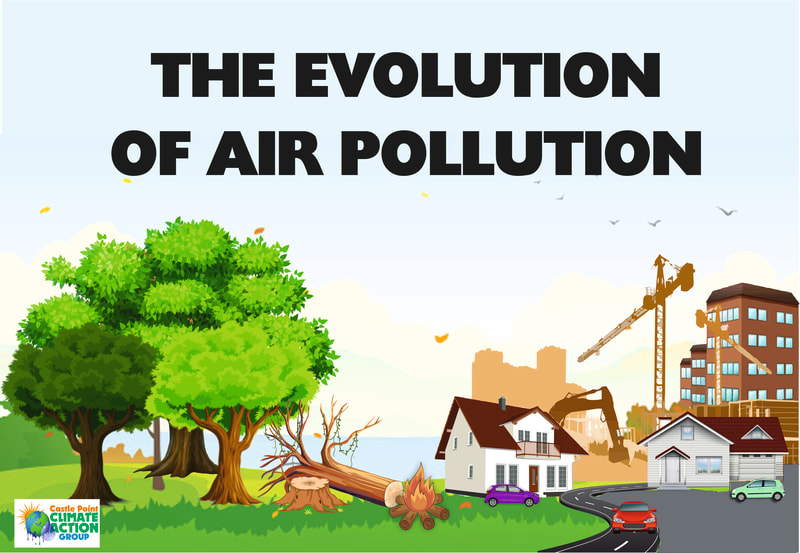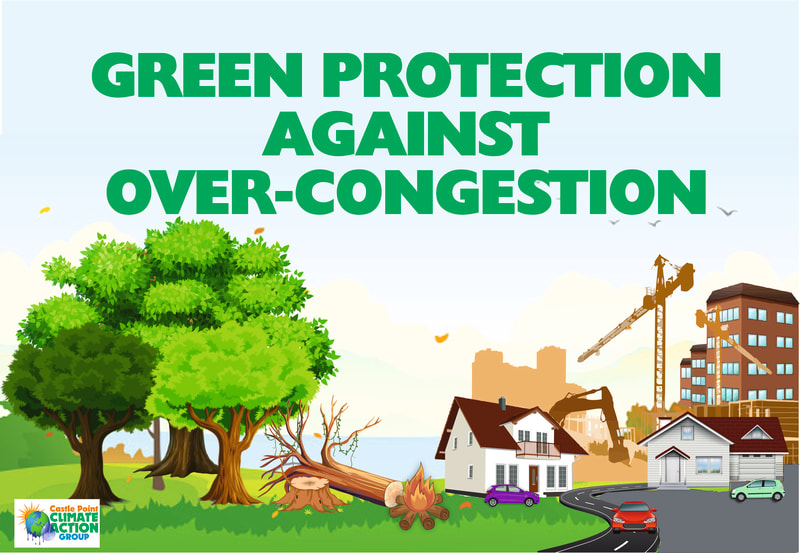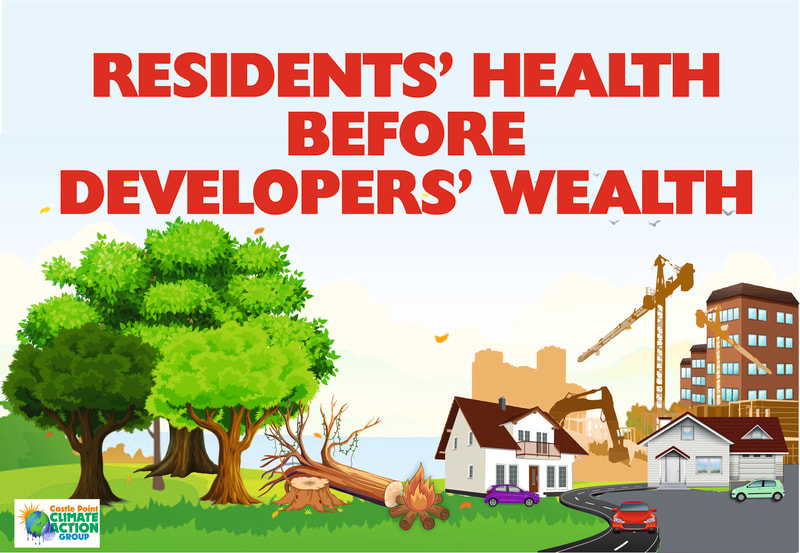|
One of our members thought it would be good to create some imagery, highlighting the issues facing castlepoint- after all- a picture paints a thousand words. We asked if he could provide some commentary for the inspiration behind these images.
'The concept came to me last night during a restless sleep and a moment’s inspiration. I have been commenting on various facebook sites about the current Castle Point Local Plan which is putting developers’ profits before residents’ health and well-being, by allowing destruction of the carbon absorbing green fields to accommodate unnecessary house building. Then the catchy rhyme of Residents’ Health before Developers’ Wealth materialised. I compiled the diagram image, from forest to deforestation, and this demonstrated and inspired the Evolution of Air Pollution slogan. Finally, I wanted a ‘green’ slogan to encourage protection of the green belt to avoid fuelling over-congestion. Where a picture paints a thousand words, it is sometimes more communicative to create a visual image of the point you are trying to put across, than lengthy paragraphs of texts. Feel free to utilise these posters to promote the principle that all this development will adversely affect our health and negatively increase the effects of climate change.' You will find these images below and also on the resources page. Feel free to print, use and promote local issues. :-) #castlepoint #climate change #essex #hadleigh #benfleet
0 Comments
We hear a lot nowadays about ‘ethical consumption’ so, wondering exactly what it means to be an ‘ethical consumer’, I went off to search. In Google, of course, like you do! I was especially interested to know whether in this mad world of ours buying ‘ethically’ is difficult and whether it really helps to bring about the urgent change we need if we are to protect our planet for future generations.. It’s generally accepted that buying ethically means we think about whether the manufacture and transport of the goods we buy are harmful or not to the environment and to society generally. So we think about the carbon footprint, resource use, animal welfare and workers’ rights along the supply chain. The Co-operative Society’s Ethical Consumer report last year showed that total ethical spending rose almost fourfold in the past 20 years. It seems that UK consumers are really beginning to think about what they buy and how their purchasing power can be used to bring about change. For starters, lots of people are suggesting that when we are going out to buy something new we need to pause a moment to think about whether we really need it. Can the old one be repaired if it is broken? Are we simply replacing something because the fashion has changed and is that really important? An important reminder here is that when we say we’ll throw something ‘away’, there is no such place as ‘away.’ Some things, fortunately, can be recycled but much ends up in landfill either in this country or more so in recent years in poor countries overseas. Much of the plastic we throw ‘away’ ends up polluting the oceans, the rivers and the land. Important in the attempt to encourage people to shop ethically is the ‘Boycott Amazon’ campaign. What’s that all about? From the Ethical Consumer website I learned that …
Another problem with a global corporation like Amazon is that is goes against what many people believe is the best way to move our planet towards a better future – localisation. The argument is that globalisation has caused many of the problems we face today, loss of biodiversity, global heating and massive inequality, so the remedy is localisation. A very good case for localisation is made by Local Futures - www.localfutures.org But, the question still remains: Can the way we choose to spend our money help to bring about the changes we need? There’s no doubt that taking account of the amount of carbon dioxide released into the atmosphere as a result of things we do and things we buy (our ‘carbon footprint’) can only help in the important and urgent task of keeping the planet’s temperature within reasonable limits. Ethical Consumer - https://www.ethicalconsumer.org/- makes it easy to keep tabs on your carbon footprint and you might decide to take out a subscription for their bi-monthly magazine which is always full of interesting facts. ick here to edit. |
|
Proudly powered by Weebly




 RSS Feed
RSS Feed